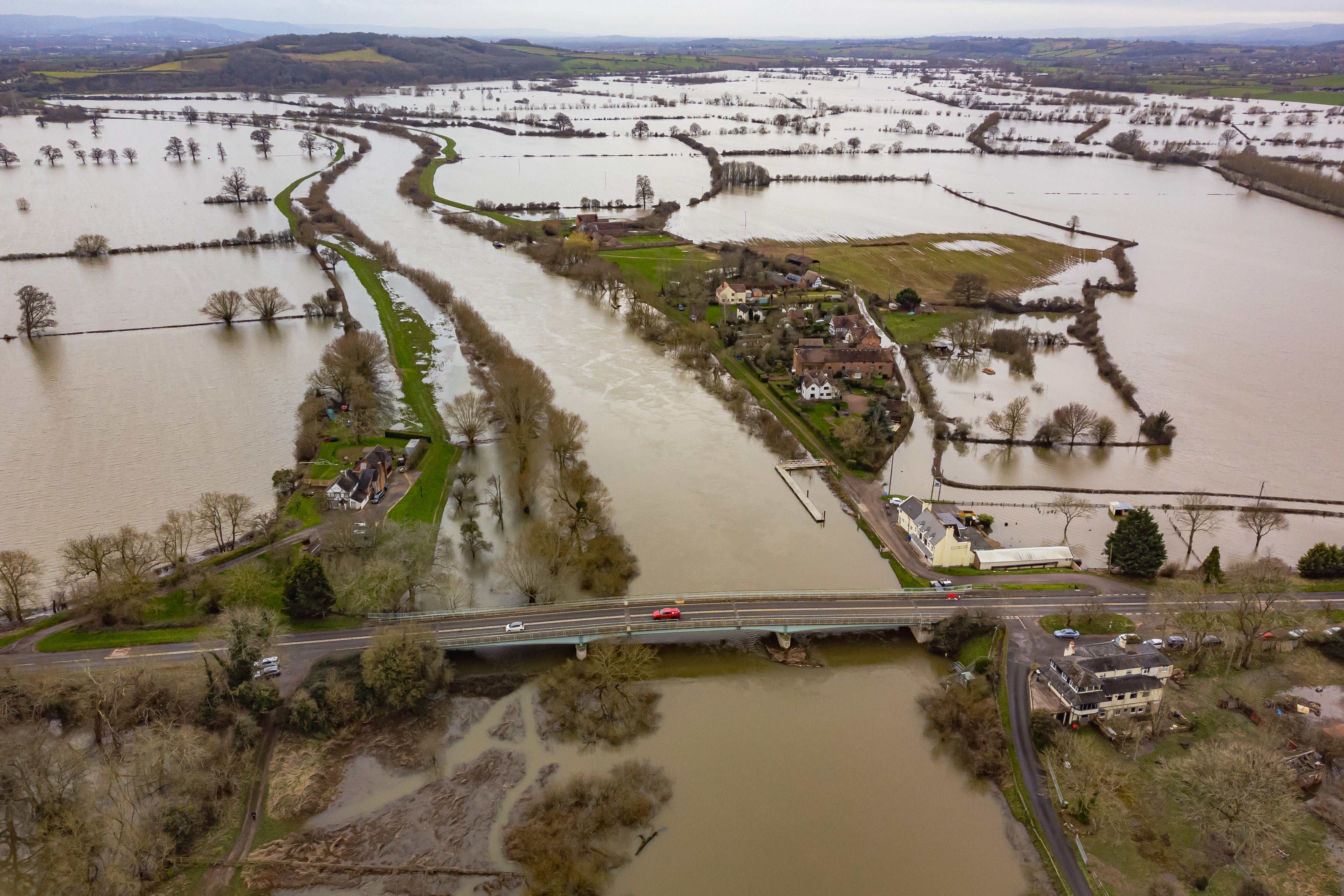Adapt or die: Climate impacts for the UK and how we can cope with them
The UK is already feeling the effects of rising temperatures.

The UK is already feeling the effects of climate change, and the impacts will worsen without action to adapt at home and cut emissions as part of global efforts.
While the new Intergovernmental Panel on Climate Change (IPCC) report does not look at individual countries, it spells out the risks to the European region as a whole, with more heatwaves, coastal flooding and losses to crops.
Other studies have shown how the UK is already being affected by climate change in a number of ways – from increased risk of downpours that cause flooding in British towns, villages and cities, to heatwaves and record-breaking high temperatures becoming more frequent, long-lasting, and intense.
Climate change is even making Britain’s spring flowers bloom a month earlier, with knock-on effects for birds, insects and whole ecosystems, research shows.
The IPCC report warns the number of deaths and people at risk of heat stress will increase two to threefold across Europe if temperatures rise by 3C compared with limiting warming to 1.5C.
Warming will shrink the habitats available for land and marine wildlife and irreversibly change their make-up, a situation which will become increasingly severe above 2C, while fire-prone areas are projected to expand across Europe.
There will substantive agricultural production losses are projected for most European areas over the 21st century, which will not be offset by gains in Northern Europe, and the use of irrigation will be increasingly limited by a lack of water.
The number of people hit by heavy rain and river flooding and the costs of resulting damage could double if temperatures climb to 3C above pre-industrial levels.
Coastal flood damage is projected to increase at least 10-fold by the end of the 21st century, and even more or earlier if we continue with current levels of effort to adapt and curb emissions.
Sea level rise represents “an existential threat” for coastal communities and their cultural heritage, particularly in the long term – beyond 2100 – the IPCC report warns.
To save both lives and livelihoods, we all need to plan, adapt and thrive
Dr Peter Alexander, from the University of Edinburgh, and lead author of the report’s chapter on Europe, said there are big variations globally in the impacts on food and agriculture, with warmer parts of the world seeing bigger effects.
But at higher levels of warming, more northerly countries such as the UK do see impacts, he said.
And he warned: “Even where there isn’t direct impacts seen to UK agricultural production that’s particularly substantial, we are part of a global food system.
“We import close to half the food we consume within the UK, and, if the rest of the world’s agriculture is being impacted by climate change, we’re going to effectively import those impacts to the UK, largely through potentially higher food prices.”
Emma Howard Boyd, chairwoman of the Environment Agency, said “it is adapt or die”, as she warned that the effects of climate change are not just happening in the global south.
“Last week, we protected over 40,000 homes from flooding in the recent storms, but the disruption to transport links and supply chains, power outages, damage to trees, offices, shops and farms shows everyone needs to rapidly prioritise adaptation as new extremes shift the dial on what’s normal,” she said.
“To save both lives and livelihoods, we all need to plan, adapt and thrive.”
She called for a review to assess the true cost of climate impacts in the UK and the value of investing public and private money in making the country resilient to rising temperatures.
The Government’s advisory Climate Change Committee has previously warned of the need for urgent action to deal with the threat of overheating in homes, power cuts and damage to nature, crops and food supplies from already inevitable global warming.
The RSPB said it has a number of nature-based schemes to help protect communities, landscapes and wildlife from flooding and other climate impacts – and called for more investment in such measures.
These include Haweswater, in the Lake District, where the RSPB, with landowner United Utilities, have been re-wetting degraded peat bogs, establishing new woods and “rewiggling” the Swindale Beck to a more natural state to protect homes and communities from flooding downstream.
At RSPB Medmerry, a £28 million project, led by the Environment Agency, has realigned the coast to protect two towns in West Sussex from coastal flooding and created wetland for wildlife.
The charity’s chief executive, Beccy Speight, said: “Ensuring our precious nature is restored and protected means it can help us adapt and be resilient to all the issues a changing climate brings, such as flooding and fires, allowing us all to benefit from the natural world.
“To best protect our homes, businesses and livelihoods, and wildlife itself, we need more investment for nature from the governments of the UK.”
Bookmark popover
Removed from bookmarks